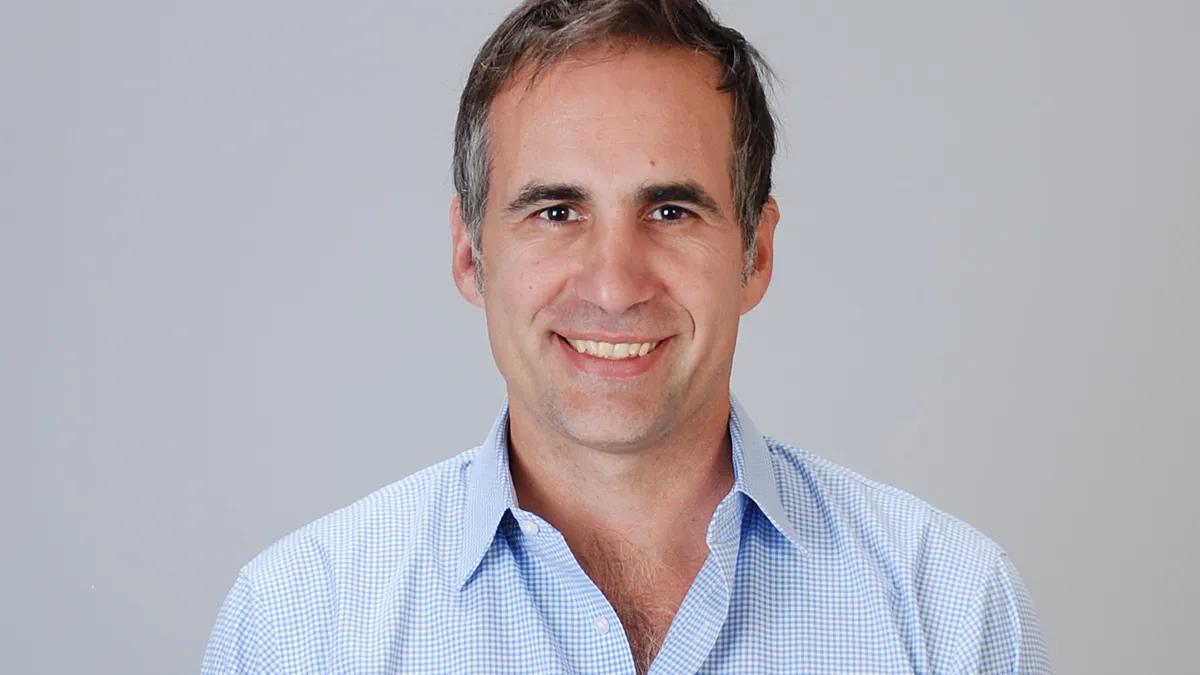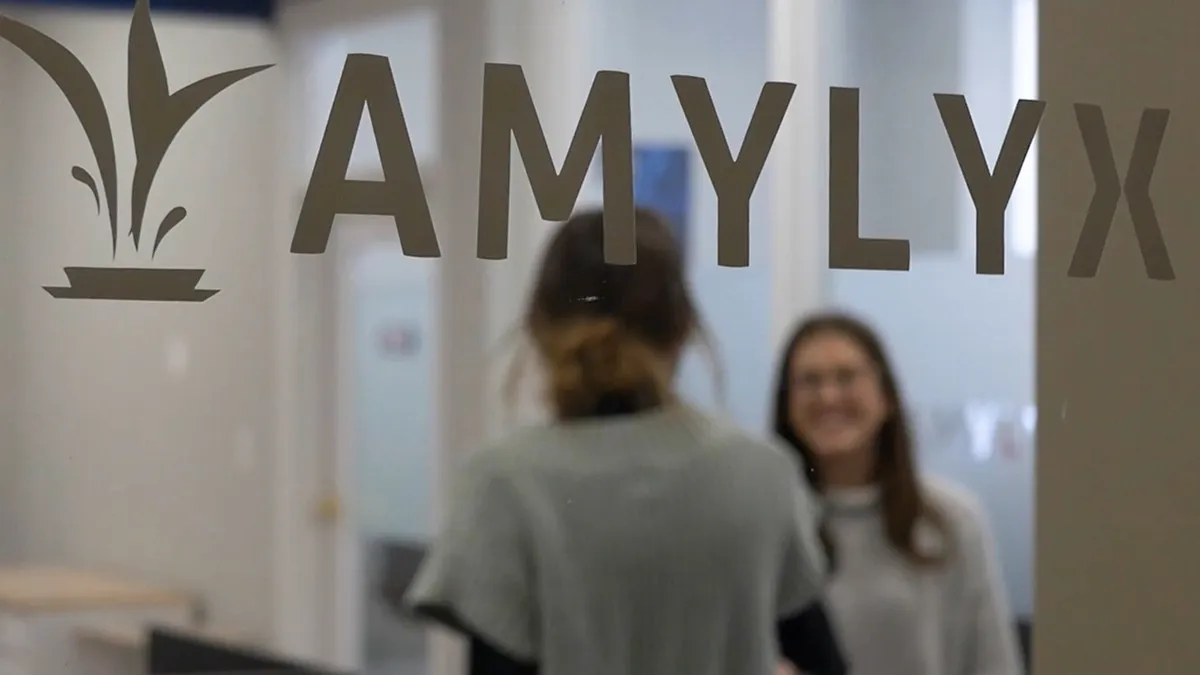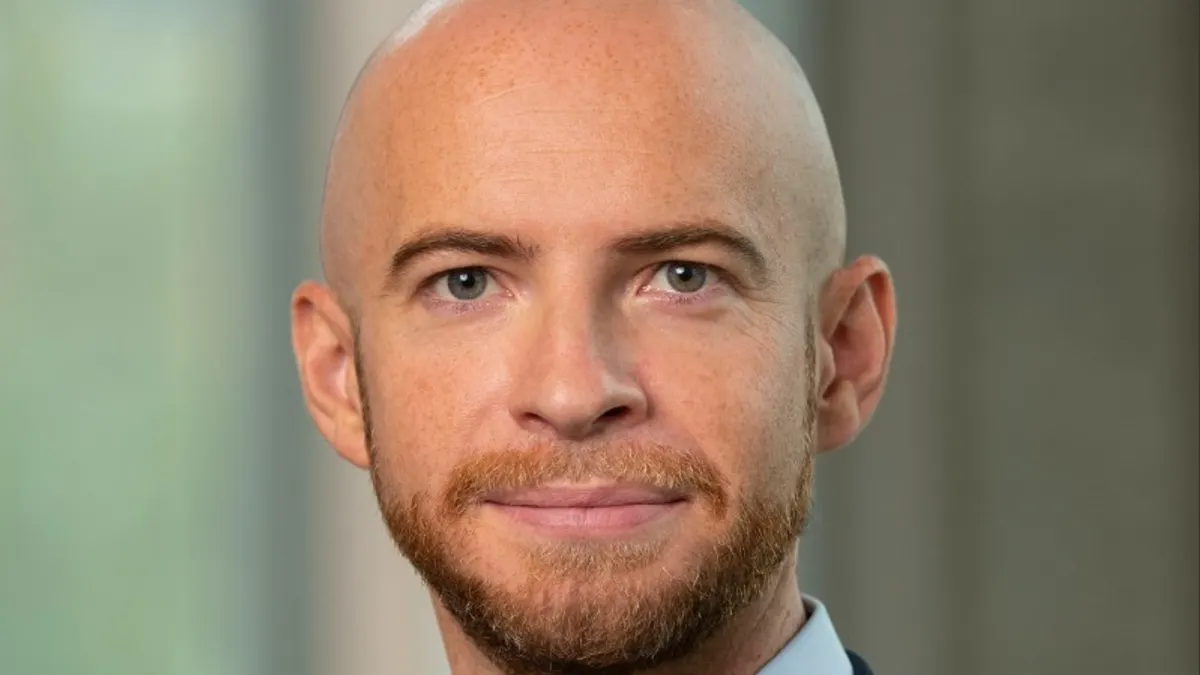Philip Astley-Sparke looks down at the framed photo in his hands and seems, for a moment, lost in a memory.
The photo's colors are a bit time-faded and in it, his kids are little — about 3 and 6 — and they look even smaller sitting atop some oversized luggage at Boston’s Logan Airport.
"It reminds me exactly of that time," Astley-Sparke says. "I can totally remember what was going through my head: The uncertainty, are we going to move, are we not going to move? Will I be able to persuade my wife? Are the investors going to support it?"
Astley-Sparke is now CEO and co-founder of Replimune, a clinical-stage biotechnology company developing tumor-directed oncolytic immunotherapies — cancer treatments that enhance the ability of viruses to replicate in and kill cancer cells, generating a patient-specific immune response.
Today, Replimune is on the precipice of successfully developing the next generation of these treatments. Within a year, they'll have data readouts for two important studies.
"We're nine to 12 months away from two registrational readouts with our lead assets in a couple of skin cancers, and we have a pipeline in liver cancer, colorectal cancer, and head and neck cancer with infinitely more potent versions of our product," he says. "We're now within striking distance of seeing whether the fruits of our labor will be successful or not, so it's getting very exciting."
But more than 15 years ago, when the framed photo he keeps on his desk was taken, Astley-Sparke was occupied with a different challenge: A huge and risky life change that would eventually end with incredible success, including the development of Imlygic, the first and only FDA-approved oncolytic virus.
A risky move
When that photo was taken, success was still many shaky years away. Astley-Sparke had joined the UK-based biotech BioVex as its CFO and sixth employee. The company’s work developing a novel therapeutic cancer vaccine was promising, but Astley-Sparke knew they needed to set up shop in the U.S. if they wanted to take the company to the next level.
"BioVex got to a certain point in its development where I felt it had to move to the U.S. to succeed further, to get the sort of capital to actually fund a phase 3 study," Astley-Sparke says.
But his young family — a wife and two kids — called England home and he needed to make the case for moving to the U.S., not only to investors, but to his wife. Eventually, he and his wife struck a deal — they'd move if they could have the third child she'd always wanted — and in 2005, the family and the company jumped across the pond.
"We're now within striking distance of seeing whether the fruits of our labor will be successful or not, so it's getting very exciting."
Philip Astley-Sparke
Replimune CEO and co-founder
By then, Astley-Sparke was CEO of BioVex, and the company was an unknown entity to American investors. Although Astley-Sparke thinks they "appreciated the audacity of moving this company from the UK to the U.S. and were very intrigued," the stateside investors wanted to see the company develop further before investing, which meant leaning on their existing investors even more heavily.
"It was tricky the first few years because BioVex was running on empty in terms of cash," Astley-Sparke said.
BioVex tried to go public in 2006 with convertible debt from its existing investors, and although the IPO failed, the money allowed the company to be funded through a data milestone they ended up reaching and ultimately allowed them to do their first funding round in the U.S.
Another larger round that followed a few years later underpinned their pivotal study, and in 2011, BioVex was acquired by Amgen for up to $1 billion.
"We had a few dices with death, but we skated through to the other side with some persistence, some judgment and a huge slice of luck," Astley-Sparke says. The bet paid off for patients, too — Imlygic was approved in 2015 to treat metastatic melanoma that can’t be surgically removed.
The joy of anticipation
Astley-Sparke replicated some of that same success as president of U.S. operations at uniQure, which developed the first gene therapy approved outside of Asia, by establishing the company's U.S. infrastructure, including a gene therapy manufacturing facility, and taking the company public.
When Astley-Sparke joined the BioVex team — alongside Robert Coffin, who is BioVex’s co-founder and its "intellectual driving force," as well as Colin Love — to found Replimune in 2015, he discovered that fundraising was easier than it had been a decade earlier.
Despite being a concept company, Astley-Sparke says the venture capitalists were "backing the track record of the management team," allowing them to move into the clinic and go public in 2018.
Things were certainly different this time around than back in 2005 when Astley-Sparke and BioVex were fresh from their move to the U.S. and surrounded by uncertainty. Perhaps that makes him even prouder of what they accomplished.
"I'm pretty proud of the fact that we managed to get a drug, ultimately, to market with BioVex after so many brushes with bankruptcy," he says. "And it was very satisfying to actually sit with some of the patients who had achieved complete responses."
Astley-Sparke is excited to see what happens next with Replimune's clinical trials and hopefully, getting its drugs to market. Until then, he'll just have to handle another cycle of unknowns, accompanied by the heady buzz of anticipation.
"It's always exciting [to] turn over your data cards," he says. "I suppose it’s the equivalent of Christmas Eve as a kid and you're about to unwrap the presents."

















